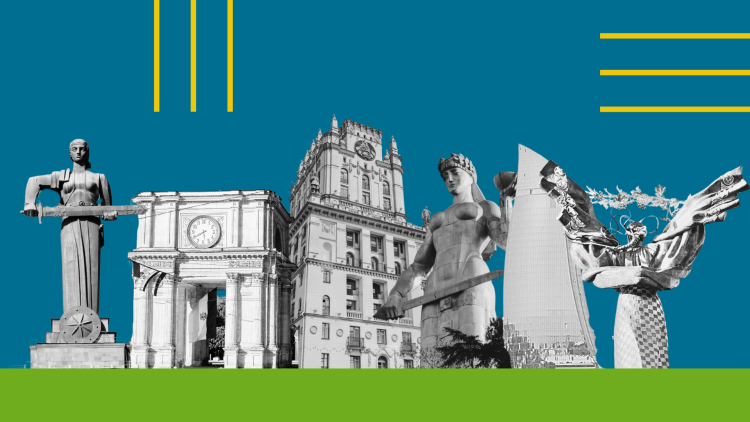
Since 2017, the CSO Meter has been keeping track of the challenges, as well as progress, in the operating environment for civil society organisations (CSOs) in the countries of the Eastern Partnership region. This monitoring has charted the path for governments to create more democratic and participatory systems in their countries, to ensure people can actively shape public life.
But monitoring itself does not achieve progress - acting on the identified recommendations is key. That is why, in 2024, ECNL launched dedicated financial support for members of the CSO Meter Hub, a regional community of 25 changemakers, enabling them to take concrete steps towards legal reforms and practical improvements identified through their monitoring work.
Driving change through the CSO Meter Hub
Since last year, this fund has enabled partners in Armenia, Moldova and Ukraine to implement the following targeted actions.
- Promoting public participation and access to justice. In Armenia, dialogue between state institutions and the Law Development and Protection Foundation has led the government to propose expanding the ability of CSOs to bring public interest cases to court. Once the changes are adopted, organisations will be able to do public interest litigation also in cases related to discrimination, and several bureaucratic hurdles will be removed. Meanwhile, partners from Transparency International Anticorruption Center are continuing a conversation with the state institutions on increasing public participation in the early stages of policy making and in the Parliament.
- Ensuring access to funding during war and in repressive environments. In Ukraine, civil society delivers critical humanitarian aid to people in need. To ensure this is done as efficiently as possible, the Ukrainian Center for Independent Political Research has worked with institutions and put forward a model to modernise the system of aid registration.
- Connecting sectors to advance conversations on digital rights. In Moldova, Promo-LEX has been facilitating a platform that brings together state institutions, civil society and businesses. Through dialogue, they can learn from each other and ensure people's rights are protected also in the digital sphere.
Further actions coming up
What's next? Recently, ECNL launched another round of grants to support additional targeted actions in the region.
- Supporting the financial sustainability of organisations as a key pillar for lasting civic action. In Armenia, NGO Center will pursue expanding the incentives for charity, through tax benefits and public benefit status. Supporting philanthropy and domestic giving will be a key step to help Armenian CSOs become less dependent on funding from abroad.
- New strategy for civil society development in Ukraine during wartime and beyond. ISAR Ednannia will provide expertise and evidence to the new Ukrainian National Strategy for the Promotion of Civil Society Development. This cooperation between civil society and institutions aims to bring forward-looking policy recommendations, reflecting the evolving needs of Ukraine’s civil society, in the context of wartime resilience and post-war recovery.
- Ensuring that freedom of association and access to funding are not limited by Anti-Money Laundering and Countering the Financing of Terrorism (AML/CFT) measures. Building on previous cooperation, the Center for Democracy and Rule of Law (CEDEM) will cooperate with Ukrainian institutions on ensuring the accuracy of risk assessments in AML/CFT measures. Currently, CSOs are unjustifiably defined as 'high-risk' entities. In a critical wartime situation, this means that they often suddenly lose access to their bank accounts and other financial services. CEDEM will work on embedding a risk-based approach to the assessment, in line with international FATF recommendations. At the same time, CSOs in Moldova struggle with excessive bureaucracy related to the Ultimate Beneficial Ownership requirement. Legal inconsistencies create confusion and unnecessary administrative burdens, which is why Legal Resources Center Moldova will advocate to bring clarity to the process.
Become part of the change
Do you want to support further actions for progress? Join the CSO Meter Action Pooled Fund to support any of the actions above, and catalyse new actions, as a donor, a capacity builder or collaborator. Contact [email protected] to start the conversation.
- Eager to support civil society in the EaP region? See the recommendations to funders
- Wondering what impact your support has? Read the Stories of Change
- For quarterly updates from the project, sign up to receive the CSO Meter Roundup
